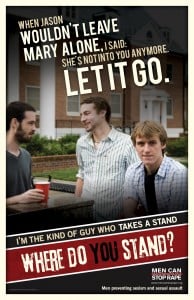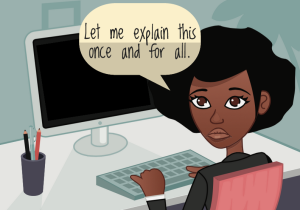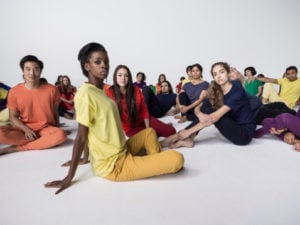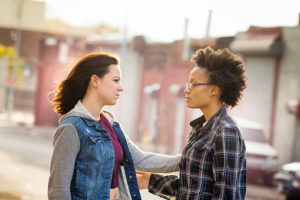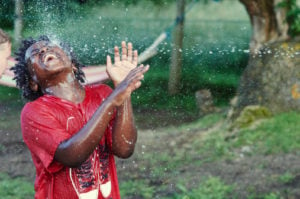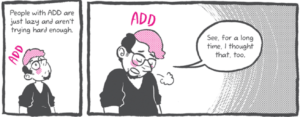CELIA: Hi y’all. This is another video I’m doing in a series with Everyday Feminism, a website dedicated to helping you break down and stand up to everyday oppression. In this video I want to discuss what’s called a White Savior, and why it’s a problem.
A White Savior is a common trope used in books, films, and as a way of interpreting actual history. It’s also a perspective shared by many white people as we move through the world. In the simplest terms, it’s when a white character or person rescues people of color from their oppression. The White Savior is portrayed as the good one, the one that we’re meant to identify with as we watch or read these narratives. They usually learn lessons about themselves along the way. There are many problems with this kind of narrative, some of which I’ll go over.
For instance, it racializes morality by making us consistently identify with the good white person saving the non-white people who are given much less of an identity in these plot lines. It also frames people of color as being unable to solve their own problems. It implies that they always need saving, and that white people are the only ones competent enough to save them. This is very obviously untrue, and it’s a harmful message to relay.
Even when white people are positioned as bad white people, like in a slavery film, we’re still also almost always positioned as the exceptional good white people, the ones who help black people achieve freedom. For instance, narratives about white teachers who come into racialized communities to help troubled students of color, those aren’t in and of themselves problematic. Considering how widespread the story is, the result is that it ignores the reality that communities of color have their own leaders and they’re not being saved by white people. It also exoticizes the young people and positions them as being automatically broken and needing saving, just because of where they live or how they look.
I also wanted to go over being a White Savior in your own life. As white people we can very easily slip into this role, even if we have good intentions. Think of all those pictures of you or your white friend on a volunteering trip to Africa, surrounded by smiling black children, in the center, positioned as the hero. That’s largely what these trips amount to. Not only an attempt to Americanize one’s surroundings by teaching English and often Western religious practices, but to be this embodied as White Savior that we’ve internalized from the narrative trope that I just discussed. Again, even if your intentions on this trip were pure and good, you can still recreate a harmful trope nonetheless.
This also applies to white teachers who are eager to enter these racialized or low-income schools, and live out the narratives that they’ve seen in movies like Freedom Writers, or similar plot lines. We assume that we can bring these life changing revelations about their potential, reveal to these children the possibilities of a better life. We white people tend to overlook our saviorism. We want to be heroes, but we end up victimizing people of color in the process.
Ultimately though, going to various countries in Africa as a white voluntourist, or teaching in a racialized community, white people take on this role as an outsider there for a short time. We have to be realistic about the limitations of our efforts and never forget our privileges going in. Even when our intentions are good, we can still contribute to this White Savior narrative that centers us as hero over and over and over again.
Us white feminists are certainly not immune to this, not by a long shot. We often think that we know what’s best for people of color. We talk over people of color because we’re so used to hearing our own voices that we don’t even notice that we’re centering ourselves again. We rush to rescue those who don’t need or want our saving, like Muslim women who wear the hijab. Instead of consulting Muslim women about this matter that truly only concerns them, or affects them, white feminists have long assumed that we know what they want, and it’s to be liberated. The movies tell me I’m the one to do it.
This is why we have to be really critical of the media which perpetuates this trope. We need to see it for what it is, and pay attention to when we do it ourselves, and when other white people we know play into it.
It’s so important that white western feminists, like me, examine our privilege and realize that people of color, whether they live in a low-income area of a big city, or a rural African country, or a Middle Eastern country, they have their own voices. I don’t know what’s best for them. They know what’s best for them. The White Savior narrative can lead us to see people of color as a sort of monolith in need of saving. When that’s what we see, we fail to recognize the very complex and varied identities of people of color.
Let’s stop assuming that we can save everyone, and listen to the matters that actually concern them. We can help, but we don’t need to be the center of it. I hope that was helpful. Short and sweet. I’ll see y’all next time.





